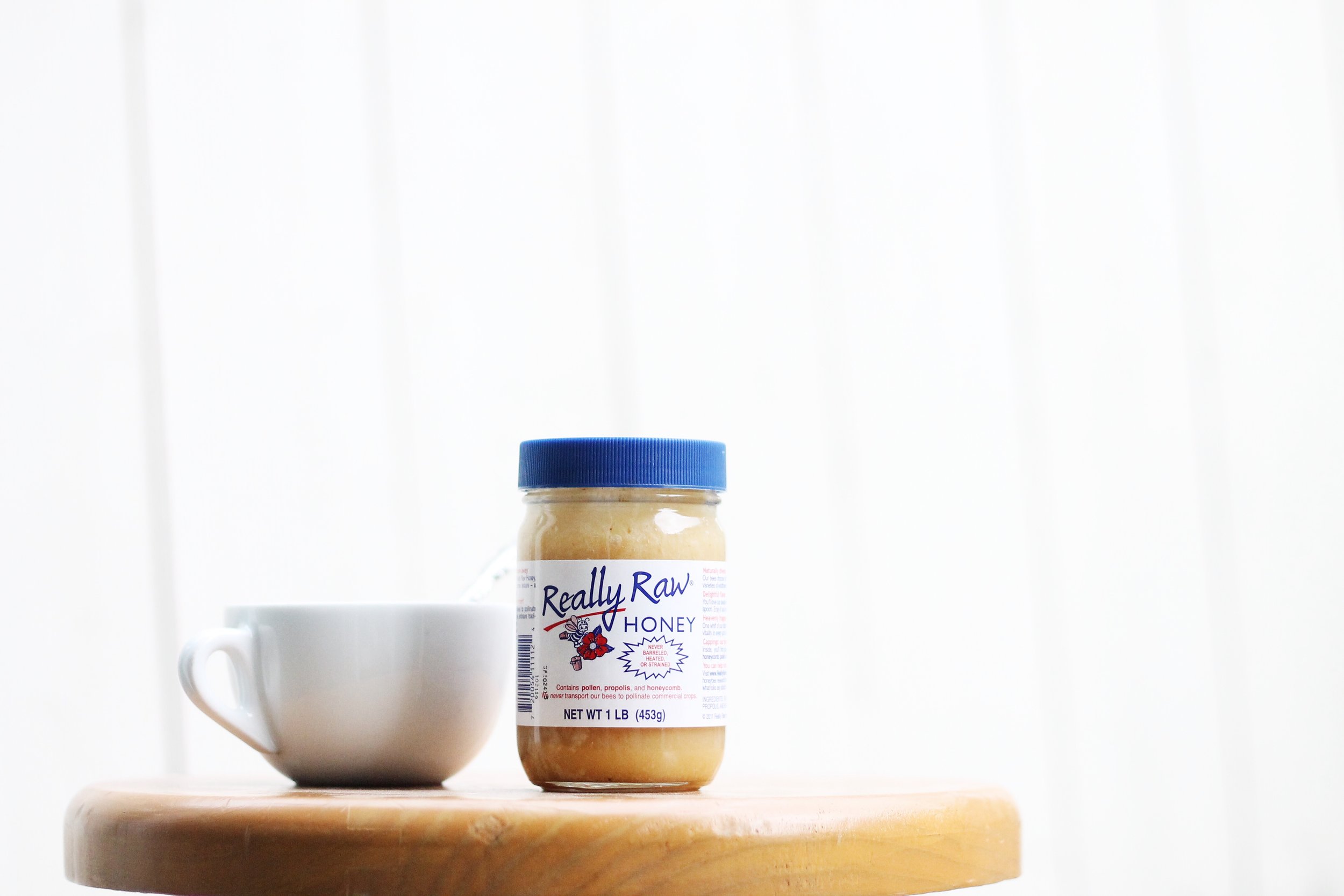Knowing Your Organic Honeys
Contributor: Ruben Tapia
Photographer: Taylor Balding
Honey has a complicated place in the current world of food with bee populations declining and the increase in bee-helping urban flower gardens being left behind. In spite of this, honey is an undeniably delectable treat with a vast range of health benefits, from anti-viral and anti-fungal to cough suppressing and blood sugar stabilizing properties. But the way honey is marketed and the lack of clear definitions for honey by the FDA makes it difficult to discern different types and what each type means as far as processing and care are concerned.
First, before we delve into the different types, all honey should be 100% pure honey with no additives, including water. No exceptions! If you go to a farmers’ market, you should be able to ask the vendor these important questions about his or her honey—and the vendor should be able to walk you through his or her processes.
Raw Honey
As a whole, raw honey refers to honey in its purest form, which is directly from the honeycomb. Oftentimes you will see a honeycomb in a jar, but in this form there are certain things you should keep your eye out for. The honey accompanying the honey comb should not be crystal clear. There is a certain amount of pollen in naturally occurring honey, so it should not be absent in honey advertised as such—that is not to say that it has to be completely opaque, but it shouldn’t have complete clarity. Honey combs as a whole are also not so overflowing in honey that they would be in a full jar, so finding out what type of honey they are immersed in or seeing if you can buy fresh honeycomb separately is often a good choice. One note of caution, raw honey can make children less than one year of age sick.
Unfiltered Honey
Honey filtering is probably amongst the most controversial topics in honey production and understandings of honey’s health benefits. Generally, unfiltered honey is unheated and not filtered. This means the natural percentage of pollen can be found in the honey and the nutrients have not been made useless by high temperatures. There has been some argument that pollen itself is too small a contributing factor to make honey more nutritious, but in either case pollen in your honey is not harmful, so there is no loss in having your honey less processed.
The biggest thing to keep an eye out for is the horrible practice of ultra-filtering that has left a largely false perception of how honey should look amongst consumers. Ultra-filtering is the process by which honey is heated and water and high fructose corn syrup are added—even antibiotics have been known to be added. This leaves the stereotypical golden honey that shines with perfect clarity and has the “drizzleable” viscosity we have come to expect. When honey has been processed to this extent, it can lose most of its value as far as antioxidants, anti-viral, and many various other health benefits.
It is especially important to ask your honey supplier(s) about the processes of filtering they have used. Was it a light general filtration, completely untouched, or does it have high fructose corn syrup additives? If you get your honey from a grocery store, doing a little research on the company can go a long way when trying to understand their honey processing methods.
Whipped Honey
Whipped honey is supposed to be a lighter, “fluffier” honey because the honey has been manually or mechanically agitated and aerated for a lighter texture. Avoid whipped honeys that are not purely honey, as this has been used as a means of tricking consumers into thinking that it is unfiltered honey that has simply been whipped.
Infused Honey
In many ways this is the cocktail of the honey world, as these honeys are often pre-mixed with fruits and sauces. Without a full, detailed ingredient list it is oftentimes better to steer clear of these honeys, as they are generally more of a flavoring based additive to cooking rather than something meant for its health benefits.
Each type has its own means of production and level of processing, but there are decided advantages in consuming organic honey, regardless of form. Well-known for its use in tea as a cough suppressant and immune booster, honey has also been shown to help stabilize blood sugar and blood pressure when consumed in moderation. For topical application honey has been shown to help with skin health and healing, though be sure to rinse thoroughly after.

